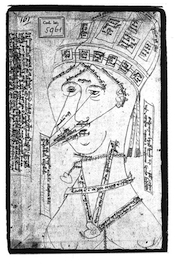 How can one explain the structure of experience? What is it that we perceive? How is it that we perceive objects and not disjoint arrays of properties? By which sense or senses do we perceive objects? Does this type of perception require a further sense over and above the five senses?
How can one explain the structure of experience? What is it that we perceive? How is it that we perceive objects and not disjoint arrays of properties? By which sense or senses do we perceive objects? Does this type of perception require a further sense over and above the five senses?
Aristotle was the first to investigate these questions to a depth that makes his account fruitful even for contemporary philosophy, but also challenging. He addressed them by means of the metaphysical modeling of the unity of the perceptual faculty and of experiential content.
My monograph, with the title Aristotle on Perceiving Objects, submitted to Oxford University Press this summer, reconstructs the six metaphysical models offered by Aristotle to address the above and other related questions, focusing on their metaphysical underpinning in his theory of causal powers. By doing so, I bring out what is especially valuable and even surprising about the topic: Aristotle’s metaphysics of perception is fundamentally different from his metaphysics of substance – which has received so much attention in the last 40 years, generating a Neo-Aristotelian movement in metaphysics.
For generations scholars attempted to fit Aristotle’s metaphysics of perception to his metaphysics of substance. Yet for precisely this reason, his models of complex perceptual content are unexplored territory. This book charts the new territory: it offers an understanding of Aristotle’s metaphysics of the content of perceptual experience and of the faculty of perception; it aims at systematizing them, explicating and exploring them, and at bringing out the metaphysical breakthroughs Aristotle achieved.
